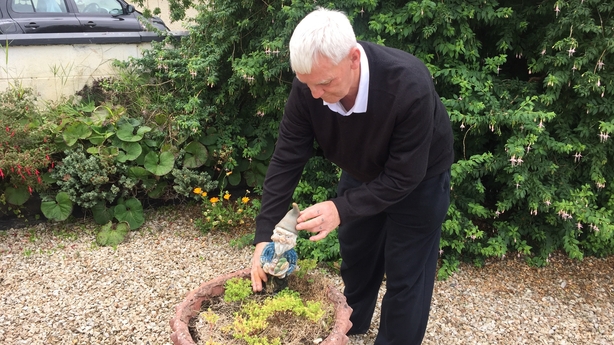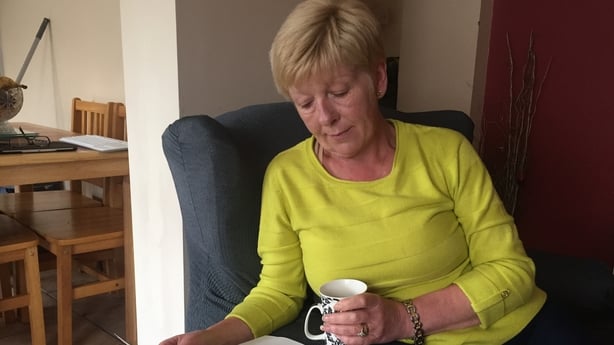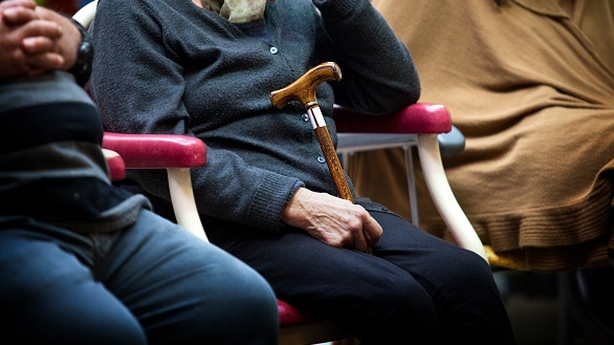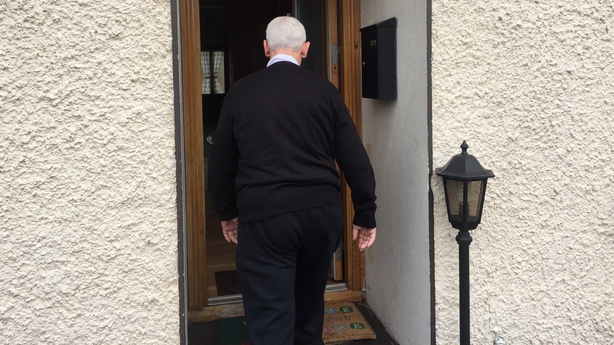The Disability Federation of Ireland has said there are more than 1,000 younger people with disabilities living in long term care such as nursing homes throughout the country.
The organisation says placing younger people, under the age of 65, into these settings is inappropriate for their health and social care needs and leads to social exclusion.
'It's like hell ... you can't go to hell because you're actually in it ... '
John O'Hagan, 58, has been living in a nursing home in Bray in Co Wicklow for two-and-a-half years.
John is a recovering alcoholic with diabetes and a liver problem. He was admitted to the home last year after a long stay in hospital.

He says: "It's like hell ... you can't go to hell because you're actually in it ... but I have nowhere else to go.
"I'm well capable of doing things for myself there's nothing wrong with me ... I'm not handicapped, I can cook myself but I need a home which I haven't got."
John's sister Bernie says the nursing home is an unsuitable environment for John to live in.
"He needs a home and he has been promised a home since all this started.

"John is well capable of going up town himself and when he goes to the council offices they either make false promises to him or they say they're not available," she says.
Bernie says that for John the days in the nursing home are very long.
"Apart from the fact that he helps the maintenance guy, but other than that its totally boring."
There are over 1,000 people under 65 with acquired disabilities living in long term care such as nursing homes across the country.

'There's a kind of institutionalised madness going on'
The Disability Federation of Ireland says these people should be moved to new smaller-scale accommodation in the community.
DFI's Chief Executive John Dolan described the situation as a scandal.
He said: "What you have to think about here is that these people have many many years of life ahead of them.
"Nursing homes are designed for frail elderly people, and the average age of admission for older people is in their mid-80s and the average length of stay is a handful of years.
"Whereas the people we're talking about here could be looking at 20 years - there are people in their 30s and 40s in these nursing homes," he said.
Mr Dolan said putting these people into nursing homes is against Government policy, which is to take people with disabilities out of congregated settings:
"You could have somebody in the HSE working hard to get a number of people out of congregated settings and into community settings and you could have a colleague in the same office trying to get a younger person with a disability into a nursing home. So there's a kind of institutionalised madness going on."
'It was devastating for us really it was like a grenade coming in our door'
Anne's husband, who is 55, was left with an acquired brain injury following a car crash two years ago.
"We are were just an ordinary family, I'd gone to work when I got a call to say that he had been in a car crash.
"It was devastating for us really it was like a grenade coming in our door and it affected not just my husband but all of our family, all of my sons."
Anne was advised initially that a nursing home was a suitable place for him to go. She was adamant that she wanted to bring her husband home but it took nearly a year to secure a home care package.
"Nursing home care was recommended because my husband needs 24/7 care. The doctors at the time believed that this was our only option.
"I reluctantly applied for Fair Deal and asked to bring my husband home that Christmas with some adaptations to our home," she said.
"I took nursing home care off the table in November 2014, because I realised he would be inappropriately placed, and I could care for him at home with the proper homecare package."
"The HSE needs to put resources into supports that help to keep people in their own home," Anne added.
'There are no facilities just for young people who need care'
A Director of Nursing, who spoke to RTÉ's Morning Ireland anonymously, was critical of the number of younger people living in nursing homes.
"I am not sure what the answer is but at present there are no facilities just for young people who need care.
"This problem is going to worse as alcohol related dementia is getting worse amongst the young (and) the hospitals have major issues with this and the numbers are increasing."
'They have no means of buying clothes as they have no money'
She also said that people who are in receipt of the Government's Fair Deal Scheme are left with hardly anything to live on.
"The fair deal leaves people who are on a disability allowance with practically no money 80% is taken, now if they smoke or get 1-2 pints a day especially people with Korsakoff's syndrome or where they have cognitive behaviour and cannot understand why all these pleasures are taken from them.
"They have no means of buying clothes as they have no money. I replace clothing items...this is not covered in the fair deal."


For now people like John who have become "old too soon" wait in hope for the system to change.
He said: "I don't think I'd last any longer in it - I'm fed up in it I'll probably die in it because that's the only solution."
In a statement, the Health Service Executive said that not all people with disabilities are inappropriately placed in a nursing home.
The HSE said purpose-built accommodation would be needed to respond to the need of younger people in nursing homes so they can live independently.
The HSE said its remit is to provide support to these individuals - but it said it was not currently funded to provide that support.

